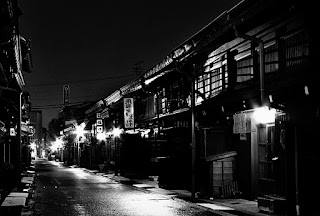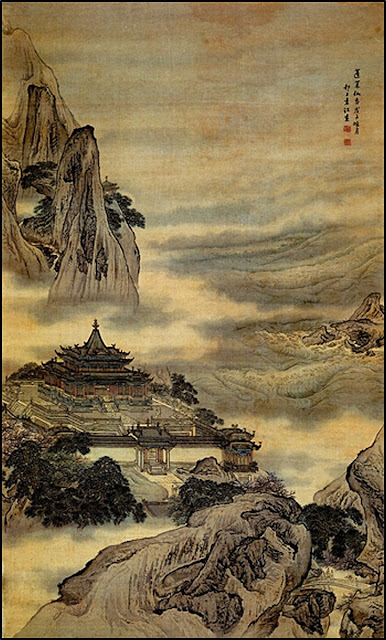I WISH YOU A BETTER EXISTENCE NEXT TIME
Arachnophobia (or arachnephobia) is a specific phobia,
the fear of spiders and other arachnids such as scorpions. People with arachnophobia tend to feel uneasy in any area they believe could harbor spiders or that has visible signs
of their presence, such as webs. If arachnophobics see a spider, they may not enter the
general vicinity until they have overcome the panic attack that is often associated with their
phobia. Some people scream, cry, have emotional outbursts, experience trouble
breathing, sweat, or even have heart palpitations when they come in contact
with an area near spiders or their webs. In some extreme cases, even a picture or a realistic drawing of a spider can trigger intense fear. My name is Hayato Tokugawa and I am arachnophoic.
No, no — I don’t scream or cry or have
emotional outbursts, but I get very nervous or uneasy. I had it pretty much
under control. Just the other day, there was a small spider scurrying around
the kitchen — I suppose looking for crumbs from the previous night’s pizza. “Ok,
I was going to pour myself a cup of coffee, but I’ll come back in a few minutes
when she’s done.”
They used to say that phobias were “unreasonable
fears” but I think in the case of spiders they are quite reasonable indeed. I grew up in Mill Valley, California, a heavily-wooded
area, and we had our shares of spiders, and from time to time I had to deal
with dangerous recluse spiders. Although there were probably black widow
spiders, I don’t recall ever seeing any. Growing up I did have a couple of “pretty
good” spider bites” from unknown species but, hey…I was a tough kid!
Nonetheless, I didn’t like them and felt uneasy around them, something that was
partially relieved by taking Entomology 101 (which included arachnology) at the
university. The end result was a certain “clinical” curiosity if encountered
but otherwise spiders were to be avoided. Ok…they “creep me out!”
Over the years there really hadn’t been much of a problem
as I did tend to avoid them and there always seemed to be a brave cat around to
take care of the problem…until last week. Either the spider would run off when
the cat’s play was too much or the cat made it disappear, doing whatever cats
do to spiders. (I know, I just don’t want to think about it!) That having been
said, it was early morning — a warm, peaceful morning — when I stepped outside,
coffee cup in hand to breathe in the fresh pre-dawn air and to enjoy the sound
of birds just waking up and saluting the day in song. Out the door and over to
the gate. There in front of me, suspended in her web at the corner of the gate
and the fence, was a large (not unreasonably, neurotically gigantic, but mature-large)
black spider, her belly turned outward clearly showing her red “hourglass”, her
arms and legs outstretched, waiting for something edible to come by and get
caught up in her net. Well, I felt a bit uneasy — nervous but not terribly
afraid — and rational enough to go back to the house, get my camera, and take a
photo of her…which came out pretty well despite a certain amount of hand
tremors. Admittedly I thought about killing her, but only briefly. Despite my
uneasiness, she wasn’t hurting anything, she was doing what she does in nature;
but more than that, I am a Buddhist and thus really reluctant to kill anything.
I’ll even step over bugs just so as not to hurt them.
The next morning she was there again in her web, striking
the same pose. She was fascinating and at the same time terrible. Yet, every time
I walked by or through that gate, even in the daytime, I felt very uneasy and
looked for her. The following morning she was not visible. The wind had come up
and it was considerably colder so I decided that she had probably taken
shelter. Fine! Good! (For me!) I thought a lot about whether I should “terminate”
her “with extreme prejudice). I even consulted a scientist I know, an expert on
animal emotions. “Are spiders sentient? I asked.
“Probably not,” was the reply. “Spiders, while they may
have swollen bellies, lack the neural apparatus necessary for the evolution of
emotions…so probably no. Then again, who knows?” I took that as a “no.”
I resolved that as long as there was no threat, the black
widow could stay, with the hope that she would eventually move on. And she
seemed to do that. I felt a slight uncertainty but was generally relieved when
I didn’t see her for two more nights. Then…the weather turned warm again and
there was no wind. I stepped out the door, coffee in hand about 5 am and walked
out through the garden gate — no spider — I thought.
Suddenly I was aware of something behind me. Dropping
down from the crossbeam — it was her in all her black splendor! She just missed
me by inches! I turned and backed away as she lowered herself to the ground and
then followed after me, in my footsteps. Maybe it was the warmth from my feet
that she was following — warm prey — I don’t know. Then she stopped suddenly,
returned to her silken thread, and climbed back up — suspended in the middle of
the open gateway about a foot off the ground. It was warm but I felt chills as
though it was mid-winter and very nervous. She watched me.
Crap! My way was blocked! The front door was locked. There
was no way back except past her and that wasn’t going to happen. I waited. I
looked at her, my hands shaking — she looked at me — waiting. This just wasn’t
going to work. I really tried but my inner peace was coming apart, and I wanted
to go home! With an “I’m really sorry,” I raised my foot (yes I was wearing
shoes) and quickly brought it down on her, with the thought “I wish you a
better existence next time.”
She lay on the pavement, curled up — dead. Shuddering and
probably making some kind of primal sound of fear and disgust, I went back into
the house. I was rattled. I hate killing anything but it really had come down
to her or me. We had been at an impasse and I had to do something.
Later in the day, I swept her off into the grass, perhaps
food for the ants. Just having her there, in the way though dead, I still felt
uneasy walking through the gate. I’m still watchful going in or out of that
gate. Could there be another?
© Copyright 2017 by Hayato Tokugawa. All rights reserved.






